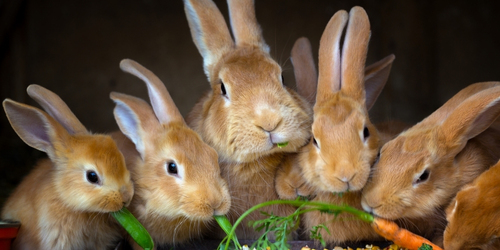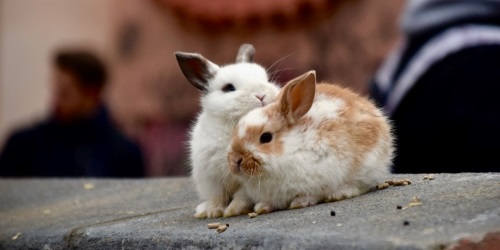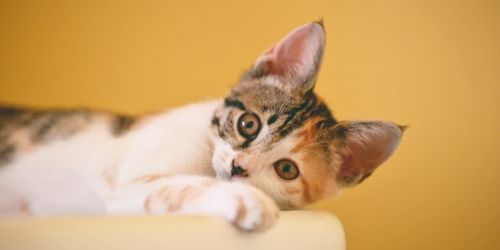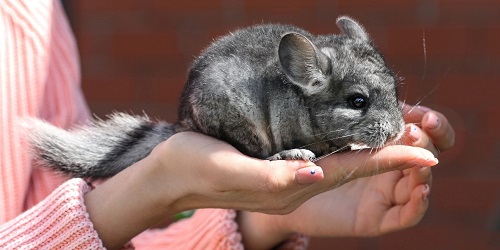Some of the links on our website are affiliate. By making a purchace via our links, you help us create new content and support animal shelters and funds
Rabbit's lifespan: How long do pet rabbits live?
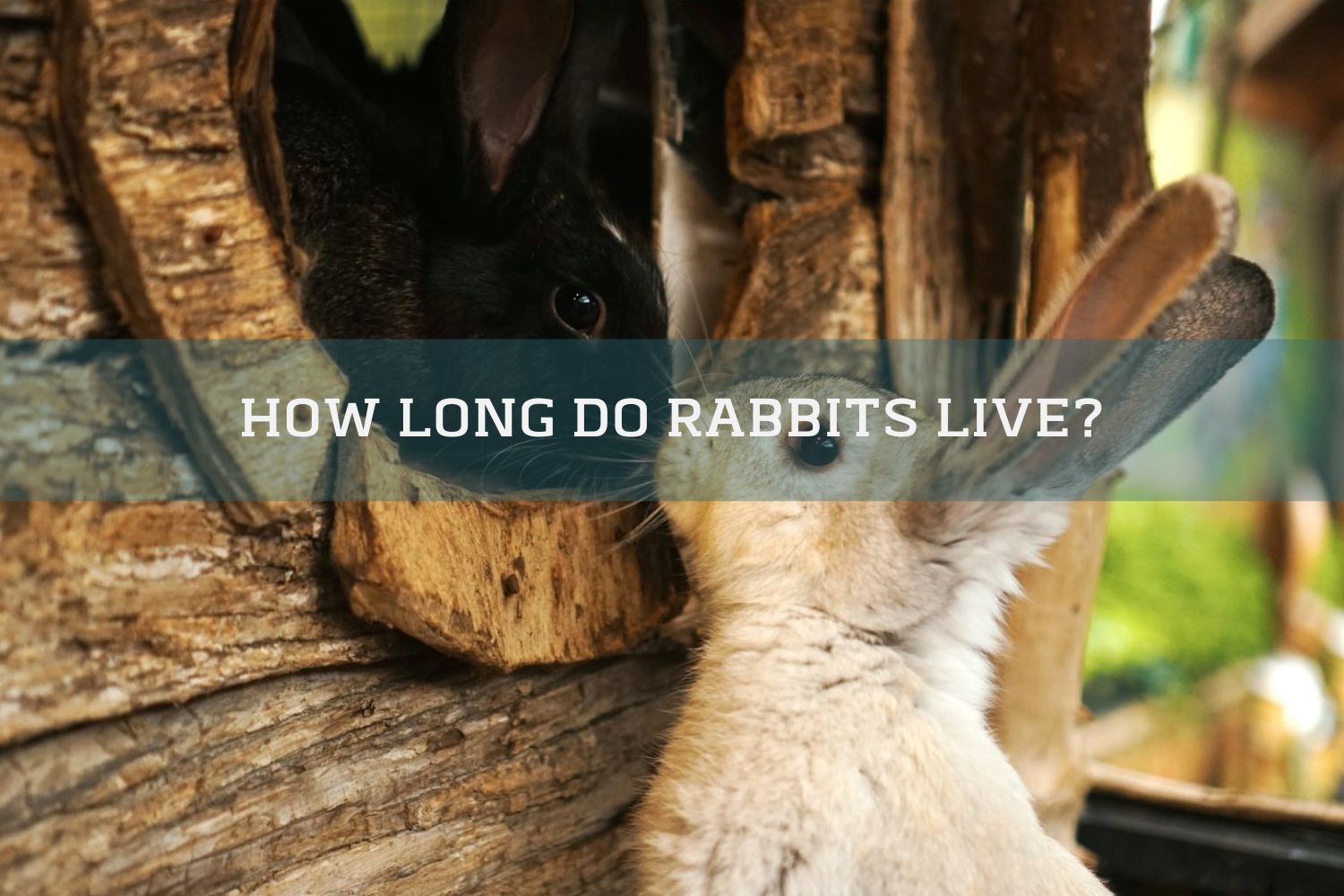
Photo by Rahim Sofri on Unsplash
Domesticated rabbits have a lifespan of 8 to 12 years. In this relatively short period, they live through a complete rabbit life cycle: from birth to adolescence, teenage, adulthood, and old age.
Rabbits are great pets: lively, curious, and social. While some people think they are "low maintenance", these creatures need proper care and attention to live as long as possible.
The oldest rabbit on record was an Australian rabbit Flopsy. Flopsy lived to be just under 19 years of age (almost 129 years if we convert his bunny age to human years).
So, read on to learn more about rabbit lifespan and what affects it, and what you can do to increase you rabbit's logevity.
What affects rabbit life expectancy?
The lifespan of a rabbit depends on a number of factors. Some you can influece, some not. The factors include rabbit's breed, genetics, provided care, and living environment. Let's have a closer look at each of them:
Breed
Some rabbit breeds have a longer life expectancy compared to other breeds. The Continental Giant Rabbit has an average life expectancy of 4 to 7 years. The Holland Lop has an average lifespan of 8 to 10 years.
Here are some of the most popular pet rabbit breeds and their life expectancies:
- The Holland Lop with a lifespan of 8 to 10 years;
- The Mini Lop with a lifespan of 6 to 9 years;
- The Lionhead rabbit with a lifespan of 7 to 9 years;
- The French Lop with a lifespan of 6 to 8 years;
- The Netherland Dwarf with a lifespan of 7 to 10 years.
Diet
As with humans, rabbits benefit from a balanced diet. Rabbits that are underweight or overweight are more likely to develop health problems that may shorten their life.
Indoor hazards
Indoor rabbits are exposed to many of the same hazards as other pets. Choking on small objects, chewing through electrical cords, and eating poisonous houseplants can lead to death or a medical emergency.
Threats from other animals
Rabbits are prey to many animals, including raccoons, hawks, foxes, cats, and dogs. Even indoor rabbits can suffer injuries or death from other pets, such as dogs and cats.
Mental health
Rabbits require mental stimulation. Socialization, exercise, and challenging activities can help keep them from getting bored, lonely, or depressed. Poor mental health increases the risk of destructive behavior and early death.
Physical health
Rabbits need regular exercise to stay healthy and keep from getting fat. Exercise is also great for your rabbit’s mental health. Most experts recommend that rabbits receive at least three hours of exercise per day.
Exposure to disease and illness
The most common illnesses in captive rabbits include gastrointestinal (GI) stasis, uterine tumors, head tilt, and dental diseases. Regular veterinary checkups can help detect these issues before they pose a serious health risk and take years off your rabbit’s life.
How to extend your rabbit’s lifespan?
You may increase the life expectancy of your pet rabbit by ensuring a proper diet and habitat. Use the following tips to ensure that your rabbit enjoys a long, healthy life:
Proper cage
If you keep you pet rabbit in a cage, make sure that it's large enough for your bunny. A general reccomendation is that the cage should be at least 4x the size of your rabbit.
Keep the cage clean. Wash water and food containers daily, remove feces from the litter and soiled bedding. Do a deep cage cleaning once a week.
Healthy environment
Damp, humid environments may increase the risk of respiratory tract infections in rabbits. These infections may cause sneezing and difficulty breathing. Rabbits may also develop pneumonia, which is a severe infection that reaches the lower airways. Maintain a humidity level of 50% and a temperature of 55-degrees to 70-degrees Fahrenheit to create a comfortable habitat.
Teeth hygiene
Give your rabbit hay, chew toys, or wood blocks. Rabbits need to chew on things to keep their teeth from becoming overgrown. Overgrown molars may create abscesses, infections, and other dental issues that can shorten the life of a rabbit.
Physical and mental stimulation
Regular exercising is good for both. You can even teach your pet rabbit some tricks!
Attention to health issues
Pay attention to head tilt. Head tilt is a condition where your rabbit tilts its head to one side frequently. This often occurs due to an ear infection but may also come from a brain parasite. A veterinarian can provide effective treatment for either issue if it is detected early enough.
Regular vet checkups
Take your rabbit to the vet twice per year. Bi-annual veterinary checkups decrease the risk of detecting a life-threatening illness too late. While healthy, young rabbits may only need annual checkups, but rabbits over the age of five should have at least two vet visits per year.
Get your female rabbit spayed
About 70% of un-spayed female rabbits develop uterine cancer in their lifetime. Removing the uterus and ovaries at five to six months of age eliminates the risk of uterine cancer.
Rabbit lifespan FAQ
How long do rabbits live?
Pet rabbits typically live for 8 to 12 years. Wild rabbits, on the other hand, have a life expectancy of one to two years.
How long do unsprayed rabbits live?
Unsprayed rabbits can live 8-12 years like all domesticated rabbits. But they have a higher risk of cancer, therefore spraying a bunny will give her a better chance to live this long.
Can rabbits live 20 years?
Currently, there's no official record of a rabbit who lived for 20 years. The longest-living rabbit ever lived till the age of just under 19 years old, and the oldest-living bunny (according to GWR) is 17 years old at the time of writing.
What is the oldest rabbit alive?
According to Guinness World Records, the oldest rabbit living is Coal. With a predicted birth date of 26 September 2005, this mixed-breed female rabbit will be 18 years old in 2023.
